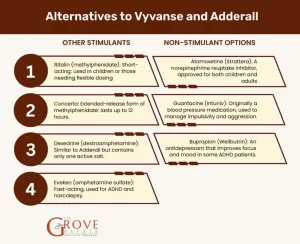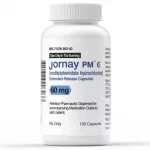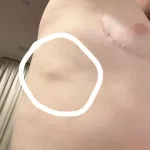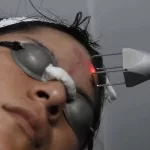At first, I thought it was nothing. Maybe you did too — just a few quirks, some little signs, a feeling in your gut that kept coming back. You know, the kind that nags at you when you’re lying in bed at 2 a.m. wondering if you’re overthinking things, or if, maybe, you’re onto something real.
So, you start searching. Maybe a doctor or a friend mentions genetic testing for autism. Suddenly, there’s this whole new world of questions. What does it even mean? Is it helpful? Is it scary? And, honestly — how much does genetic testing for autism cost? That’s a big one, right?
If you’ve been there — trust me, you’re not alone. It’s messy, confusing, and sometimes overwhelming. But let’s walk through it together, friend to friend. I want to help you get a handle on what to expect, how it all works, and yes, exactly what you might be looking at when it comes to the bill. Ready? Let’s dive in.
What Is Genetic Testing for Autism, Really?
Let’s start simple. Genetic testing for autism is kind of like looking for typos in a really, really big book — except the book is your DNA. Instead of checking grammar, though, scientists are searching for changes or differences (they call them “variants”) that might be linked to autism. Sounds wild, right?
There’s more than one way to do this. Some tests zoom in on big sections, and others go letter by letter. The most common types are:
- Chromosomal microarray (CMA): Think of this as scanning whole paragraphs at once for major changes.
- Whole exome sequencing (WES): This one digs deeper, checking each word in the most “important” chapters of your DNA.
- Single gene or panel tests: Sometimes, doctors suspect a certain gene, so they check just a few pages instead of the whole book.
But here’s the thing: genetic screening for autism doesn’t always give you a clear yes or no. Sometimes, it finds something. Sometimes it doesn’t. And sometimes, well, it finds something… but nobody knows what it means yet. Like a mystery note in the margin.
Why Do Doctors Recommend Genetic Screening for Autism?
Okay, so why go down this path at all?
Doctors might suggest genetic testing for a few reasons. Maybe it’s to find answers — like why your child is having certain challenges. Sometimes, it helps with planning therapies or spotting other health issues. And in some cases, it can help families understand if there’s a chance of having another child with similar needs. For some, it’s about closure. For others, it’s about opening new doors.
But — and this is important — genetic testing for autism isn’t required for a diagnosis. The diagnosis is still based on behavior and development. The test is more like a tool in the toolbox. It’s not magic, but it can offer clues.
Breaking Down the Cost of Genetic Testing for Autism
Let’s get real: genetic testing for autism cost can feel like a mystery wrapped in an enigma, especially when you’re already juggling doctor visits, therapies, and all the day-to-day stuff life throws at you. So, what are we really talking about here?
What’s the Average Cost?
Here’s where things can get a little frustrating. There’s no one-size-fits-all answer. The price tag depends on the type of test, where you live, and even what kind of insurance you have. But let’s put some numbers on the table:
| Type of Test | Typical Cost (USD) | Turnaround Time | Notes |
|---|---|---|---|
| Chromosomal Microarray (CMA) | $1,500 – $2,500 | 2-4 weeks | Most commonly recommended |
| Whole Exome Sequencing (WES) | $3,000 – $5,000+ | 4-8 weeks | More detailed, but pricier |
| Single Gene/Panel Tests | $300 – $1,500 | 2-4 weeks | Used if a specific gene is suspected |
But — and you’ll want to hear this — that’s the sticker price. Insurance might cover a big chunk, or sometimes even all, depending on your plan and the reason for the test. Some labs also offer financial assistance. Never hurts to ask! According to MedlinePlus Genetics, the price varies a lot, and sometimes you can get results in just a few days, but it might take weeks.
Is Genetic Testing Covered by Insurance?
This is the part where you grab the phone and call your insurance company (I know, I know — nobody likes doing it, but it’s worth it!). A lot of insurance plans will cover genetic testing for autism if a doctor recommends it, especially if there are clear medical reasons. But every plan is different.
Here are a few pro tips I’ve picked up:
- Get a “prior authorization” — basically, a note from your doctor saying it’s medically necessary.
- Ask the genetic counselor or provider to check coverage before you go in for testing.
- If insurance says no, ask them to explain why. Sometimes, an appeal works if you and your doctor make a strong case.
And if you’re worried about the cost, don’t be shy about asking labs or hospitals about payment plans or discounts. Sometimes, you can get help you didn’t even know was there.
Cost Comparison Table
Let’s lay it all out, side by side:
| Test Type | Cost Range | What It Finds | Who It’s For |
|---|---|---|---|
| CMA | $1,500 – $2,500 | Large changes in chromosomes | Most children with autism |
| WES | $3,000 – $5,000+ | Specific gene mutations | When CMA is negative, or strong family history |
| Panel | $300 – $1,500 | Specific genes linked to autism | If a syndrome is suspected |
Where to Get Genetic Testing for Autism
So, where do you actually go for this? Is it like a regular blood test? Or do you need some super-special lab?
Hospitals, Clinics, and Specialized Centers
Most people start with their child’s pediatrician or a specialist. They might refer you to a genetic counselor or a genetics clinic. Some big hospitals and children’s hospitals have entire teams just for this. A quick search for where to get genetic testing for autism in your area (or asking your doctor) usually gets the ball rolling.
Pro tip: Always look for accredited labs or clinics. You want folks who really know their stuff, not just someone with a fancy sign. If you’re not sure, ask about their experience with autism-related testing. It’s totally okay to be picky — you’re your child’s best advocate!
Can You Get Genetic Testing for Autism Before Pregnancy?
This is a big one for families thinking about the future. Genetic testing for autism before pregnancy is possible, but it’s a bit complicated. Here’s the deal:
There’s no single “autism gene” that doctors can test for before you get pregnant. But if you or your partner have a known genetic change related to autism, or there’s a strong family history, doctors can sometimes check for those specific genes. This is called “preconception screening.”
For most families, though, genetic screening before pregnancy focuses on more common conditions (like cystic fibrosis or fragile X syndrome, which can be linked to autism). If you’re considering this, talk with a genetic counselor. They’ll help you untangle all the options. It’s a bit like looking into a crystal ball — you might not see everything clearly, but you can get a sense of what’s possible.
What to Expect: From Testing to Results
Alright, let’s talk logistics. What actually happens when you decide to go for genetic testing for autism?
How Long Does It Take to Get Results?
Waiting is the hardest part, isn’t it? Once the sample (usually blood, but sometimes saliva) is sent off, it can take anywhere from a few days to a few weeks. Most often, it’s about 2-4 weeks, but more complex tests (like WES) might take longer. Some labs move faster, some slower — kind of like waiting for a package you really, really want, but you can’t track it online. Hang in there!
What Happens During a Blood Test for Autism Gene?
It’s not as scary as it sounds, I promise. The “blood test for autism gene” is just a regular blood draw. One quick poke — your child might not even notice if they’re distracted by a good cartoon or a lollipop. If you’re nervous, ask if you can bring a favorite toy or comfort item. Sometimes, parents get their blood drawn too, to help compare results. It’s all about getting as clear a picture as possible.
One mom I spoke to said her son was more excited about the sticker he got afterward than anything else. Sometimes, it’s the little things.
What Will (and Won’t) the Results Tell You?
Here’s where things can get a little tricky. The results might say:
- Positive: A genetic change was found that’s known to cause or increase the risk of autism.
- Negative: No known genetic cause was found (but that doesn’t mean autism isn’t present — just that the test didn’t find a cause).
- Uncertain: Something unusual was found, but nobody knows yet if it’s important. Science is still catching up!
This is why having a genetic counselor is so important. They’ll walk you through what the results mean — and what they don’t. And they’ll help you figure out what comes next, whether it’s more tests, different therapies, or just keeping an eye out for new research. You don’t have to figure it all out alone.
Weighing the Benefits and Risks
Alright, let’s get real. There are upsides and downsides to every choice, and genetic testing for autism is no different. The big question is: Is it right for you and your family?
How Can Genetic Testing Help Families?
For a lot of families, the biggest benefit is answers. Even if the answer is “we don’t know yet,” sometimes just having a path to follow is worth it. The results can:
- Help guide medical care (like knowing if other health issues are likely)
- Open doors to clinical trials or research studies
- Give you a sense of closure — or at least, a little more understanding
- Help with family planning, especially if you’re thinking about another child
It’s not a magic wand, but it can be a guidepost.
Risks, Limitations, and Emotional Considerations
But — and this is a big but — there are risks, too. Sometimes, not knowing is easier than knowing. The results can be confusing, and sometimes they bring up more questions than answers. There’s also the emotional weight: hope, relief, anxiety, fear. It’s a lot. And privacy is important — genetic information is sensitive, and it’s okay to ask how your data is stored and used.
Some families find that genetic testing brings peace of mind; others feel it just adds to the uncertainty. There’s no right or wrong answer here. The only “wrong” is feeling like you have to do this alone. You don’t.
Getting Reliable Support and Guidance
If you feel lost — and who wouldn’t, sometimes? — reach out. Talk to your child’s doctor. Find a genetic counselor. Connect with other parents who’ve been through it. Reliable information is out there, and you deserve support that’s trustworthy and kind. Expert interviews, patient stories, and resources from places like MedlinePlus Genetics can help you feel less alone and more empowered.
In the End: It’s About Your Family’s Journey
So, what’s the real story behind genetic testing for autism cost? It’s complicated — but manageable. The numbers vary, the process can be confusing, and the answers aren’t always black and white. But what matters most is that you’re asking questions, seeking understanding, and doing your best for your family. That’s huge. That’s brave.
Whether you decide to pursue testing, wait, or just keep exploring, you’re not alone. Reach out to experts, talk to other parents, and lean on resources you trust. And if you have questions — or just want to share your experience — I’d love to hear from you. What do you think about genetic testing for autism? Has your family tried it? What helped you make your decision?
Remember: there’s no single “right” answer. There’s just your answer, for your family, at this moment. And that’s more than enough.
























Leave a Reply
You must be logged in to post a comment.